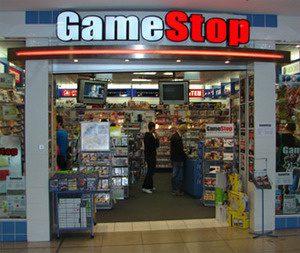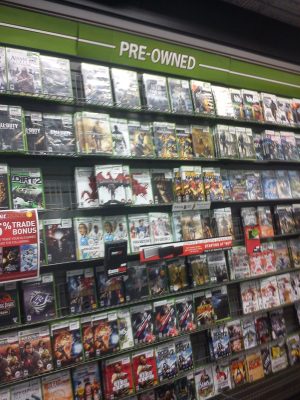Earlier this week Kotaku reported on as of yet unconfirmed rumors that the next Xbox console will lock-out used games. For many, this seemed like a dramatic and, ultimately, unfair gesture that will hamper many people’s enthusiasm and support for the next generation.
The used market is used to being the punching bag of publishers by this point. Publishers and some developers like to claim that used games take a significant bite out of their pocket, likening it to piracy. They have somehow convinced themselves that eliminating used games will lead to a gigantic sales bump in new games, ignoring any amount of logic and reality towards this pursuit. More than likely, eliminating used games will sink new games sales by an incredible degree, and force the shuttering of far too many studios, as well as lead to further monetization of games we already pay full price for.
While the retail implications here are pretty obvious (say goodbye to Gamestop), the real issue is how the market works. Imagine buying a car, then being told that you can never sell it, or let anyone else drive it. Ever. Would that lead to greater auto sales? Of course not. The used industry exists because when someone purchases something, they feel that they own it, and that they can use it how they want. Media is the only medium where we see the industry try to manage the consumer’s usage after they take their money, and now want to prevent them from every sharing that product.
2010 is the perfect example of why this concept hurts everyone. Each month saw the release of two or more major titles. The amount I personally spent on new games last year is an embarrassment, and I still wasn’t able to pick up every game I wanted. While agonizing, being able to sacrifice portions of my collection was the only way I could invest in the games I felt I had to pick up, and that is certainly not an uncommon thread among gamers.
The decision to trade in games has an even bigger effect on new IPs. Obviously, Portal 2 was a known property and a safe buy, but what about a game like Bulletstorm? It is no secret that games with a “2” after them sell better, but how many fans are willing to risk $60 on a new title so we get to see a sequel? Bulletstorm was an incredible game, and one of my favorite shooters this generation. I would never have picked it up without being able to use trade in credit to mitigate the price, but now they have a day one adopter for the sequel. That fluidity and flexibility allows gamers to experience new titles, to branch out. Even though at most a $60 dollar game yields $30 dollars, at the end of the year that can earn a player 5 to 10 news games they otherwise wouldn’t be able to afford.
What is most insulting is that we know game prices won’t drop. Digital distribution was supposed to lead to cheaper games and more variety, but that has not been the case at all. We’ve seen prices of digital games slowly creep, with $20 being the new price point for games that used to be $5-$10. There is no reason for publishers to price new games below $60, and without the ability to recoup any of that loss if you buy a lemon, gamers will be a lot less likely to invest in new IPs. Why risk your money on a new game when you can wait for a game you know will be worth your money?.
Before jumping into the deep end, Microsoft, if they do go this route, needs to prove that it can benefit us, the consumer. Prove that prices will be lower. Show us that you can give us enough content in a demo to prove a games merits a full price purchase instead of giving us a 15 minute ad. Typically, gamers have been fiercely loyal and steady consumers. Personally, I want to give my money to the industry. I have no issue blowing as much income as I can, but the fact is, buying two new games a month is $120, which is almost half my rent, or my entire phone bill. If this become the new standard, games would be the only medium that, if I was unhappy with a product, I have no recourse. It would sit on the shelf until I throw it away. I can’t even give it to a niece or nephew, and I couldn’t take it to my friend’s house or lend it out like I can movies, music or books.
Of course, this is all speculation at this point. Microsoft has yet to confirm or deny the rumor. It’s common knowledge that we are moving towards a digital only model, and that switch will dry up the used market, but next generation feels too fast. With the Wii U on the horizon, and Sony yet to release any details on its next platform, we’ll have to see how the industry as a whole handles used games this generation. The initial reaction is of course anger, but we need to start looking at ways to prepare and change the industry so we can benefit as much as the console makers and publishers.




